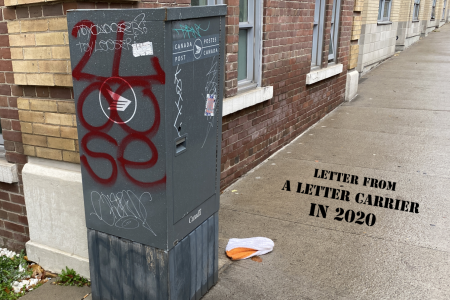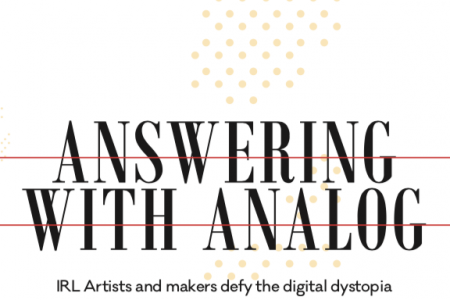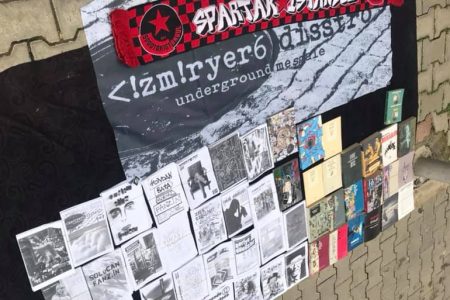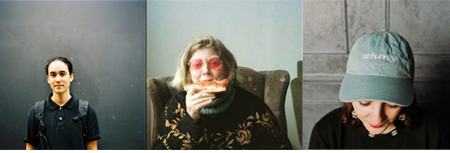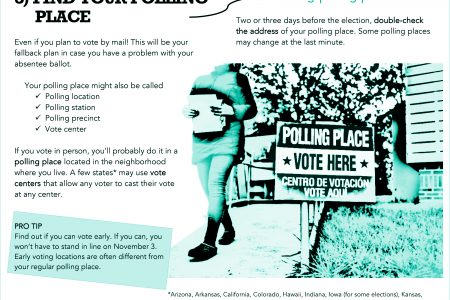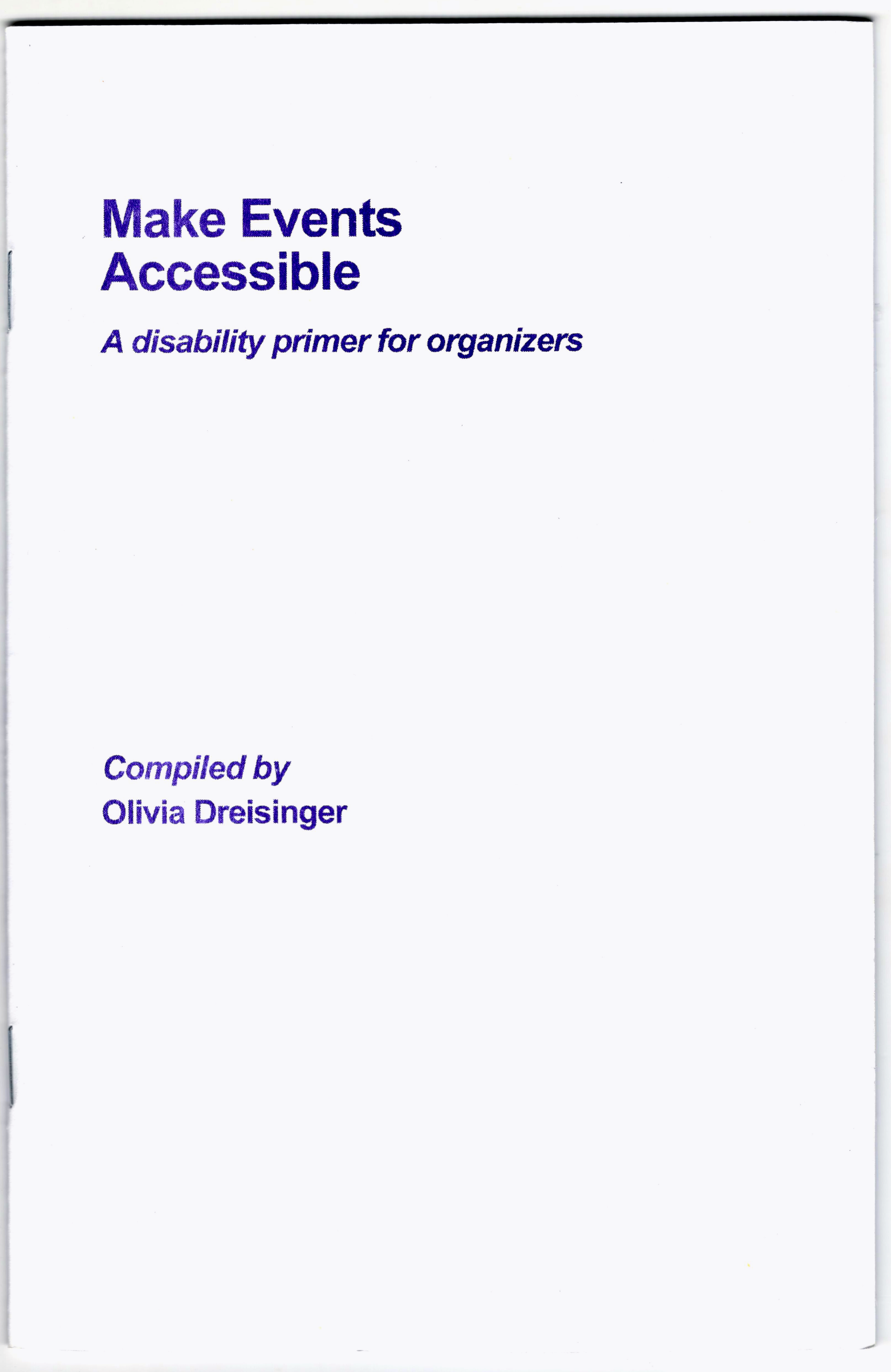 Make Events Accessible
Make Events Accessible
Zine, Olivia Dreisinger, 28 pgs, makeeventsaccessible.wordpress.com, free
I enjoy reading new zines or resources about event accessibility, and I usually find the experience healthy and challenging, motivating me to improve my own practices. This particular zine offered exceptionally thorough information, advice, terminology, and experiences, with many specifics that were new to me or at least under-examined. However, I ultimately found it too dense and prescriptive, and it left me feeling considerably more hesitant than well-equipped and inspired.
Compiled by disability scholar Olivia Dreisinger, the guide aims to “outline how to make your events more equitable, inclusive, and accessible to the disability community,” with a focus on academic events. She wastes little time getting into the practical stuff, largely bypassing theory. The zine opens with a short intro followed by a thorough checklist for would-be organizers. This covers a host of access considerations: event promotion, transit, food, building design, maps, washrooms, scents, content warnings, print-outs, font size, interpretation, breaks, lights, support workers, childcare, and door costs, to name some. Though occasionally daunting, this alone is a takeaway I could see myself using. The content that follows steps back to dive deeper and offer recommendations for each of these topics. It’s jam-packed and thorough, sometimes drifting into a wordy, unclear lexicon, but providing plenty of useful information.
After a certain amount of these instructional sections; however, I found myself unsure — not about any point in particular, but about the zine’s basic orientation towards accessibility. The detailed recommendations may be useful, but they suffer in the absence of some clearly explained principles to ground them. Dreisinger’s suggestions tend to be imperatives — gentle, but not up for debate. As a result, they’re all premised on the writer’s de facto authority, a tense dynamic where the reader is presumed to be totally ignorant, a student who must dutifully receive this sagely expertise as presented, rather than commit to it through self-reflection or inquiry.
Of course, lived experience of disability is valid expertise and authority, so I don’t mean to question that Dreisinger knows some of this stuff firsthand (and plenty more through her scholarship). But there is so much information here and little in the way of sources or testimonials to ground it, making the didacticism dubious. Isn’t it likely, after all, that readers of this zine will themselves be disabled, or already engaging with accessibility planning? (If they aren’t, this content will surely be intimidating.) I fear an accessibility methodology based on there being one right way to do things will always be shaky, given how unpredictable this kind of planning can be.
I appreciate how disability justice frameworks often emphasize dignified communication, responsiveness, and flexibility. It strikes me that the zine never suggests that event organizers might simply, you know, ask people about what accommodations they may require, proactively build relationships with disabled people, or include disabled people at the planning table. The model presented here is more of a purely predictive practice instead, and a high stakes one. The relationship between event organizer and attendee is framed as antagonistic, as though each event were also a test of the organizers’ thoroughness and commitment. With so many factors to think about, the true purpose of holding rich and diverse events seems to get lost or foreclosed, to the detriment of all parties. Hosting events that support and welcome all people with disabilities is complicated, unpredictable, messy, and sometimes contradictory. But it is ultimately worthwhile in my experience, and building a living, ongoing accessibility culture requires as much surprise and compromise as it does ambition and understanding.
I may be responding to some broader issues in the accessibility discourse that this zine can’t be accountable for. I’m sorry. As I said, there’s lots of useful information here, and Dreisinger deserves credit for providing it.
I take heart in the fact that the zine calls itself a “primer,” in that it can be much more effective and powerful if its readers see it as a beginning point, not an end.

